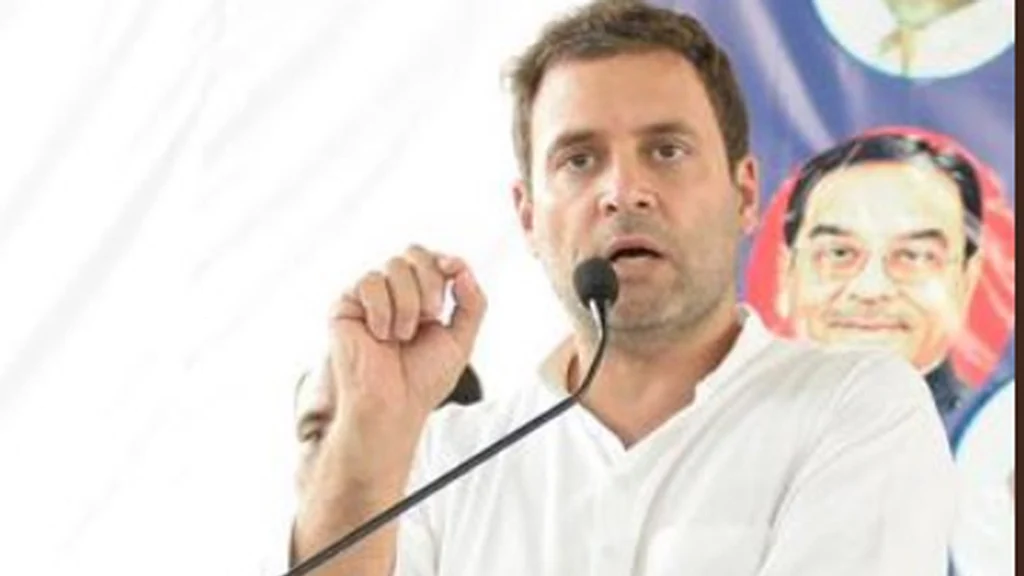Modi has damaged India by converting anger into communal hatred: Rahul Gandhi
Congress Vice President writes in the Financial Times about the damage two crucial decisions of the Modi government-demonetisation and GST- has caused

Rahul Gandhi’s article in the Financial Times makes these valid points on the implementation of crucial economic decisions- demonetisation and Goods and Services Tax:
One year ago Narendra Modi bypassed the Reserve Bank of India, locked his cabinet in a room and gave the country just four hours notice before announcing his arbitrary and unilateral demonetisation scheme. Overnight 86 per cent of the value of India’s currency was withdrawn from circulation.
The prime minister claimed his decision was aimed at wiping out corruption. Twelve months on the only thing he has wiped out is confidence in our once booming economy.
Demonetisation has wiped out 2 per cent of India’s gross domestic product, destroyed the informal labour sector and has wiped out many small and medium businesses. It has ruined the lives of millions of hard-working Indians. The Centre for Monitoring Indian Economy has calculated that over 1.5m people lost their jobs in the first four months of 2017 due to demonetisation.
This year, a hastily imposed and poorly conceptualised goods and services tax dealt another blow to our economy. Bureaucratic and complex, it has devastated livelihoods, creating a modern day “Licence Raj” that imposes rigid controls and gives vast powers to government officials.
These two acts come at a time when global forces place particular demands on India’s economic model. One of the primary responsibilities of a state is to provide vocation to its people. China’s global monopoly on blue-collar jobs is a fundamental challenge to other states. This has created millions of disenfranchised and angry workers who express their frustration at the ballot box — whether in votes for Mr Modi, Brexit, or Donald Trump.
In democracies, information once resided in institutional silos accessible only to a limited number of people. The internet has destroyed those monopolies. Connectivity and the transparency it inspires has positively transformed the world, but in doing so it has also irreparably damaged the machinery of our institutions. The resulting fragmentation has created an environment in which strongmen can flourish apparently unchecked.
Chinese political organisation combined with communications technology to transform the factory. In the 1990s, Chinese manufacturing accounted for a mere 3 per cent of the world’s goods by output value, today that figure is closer to a quarter. Their costs are lower than any of their western competitors; they manufacture at scale; and are not burdened by dissent, workers’ rights or the interruptions of transparency. According to official figures, China currently creates on average 50,000 jobs every single day; India under Mr Modi manages only 500.
This advantage comes with a brutal cost — China’s people are not free to speak, to dissent or to question and those that do are swiftly and severely punished. This is not a model India should emulate.
For India, the real force capable of meeting the Chinese job challenge is our huge network of micro, small and medium businesses. They represent India’s innovative capabilities and have the skills, knowledge and understanding to take on China’s manufacturing machine. We urgently need to empower these networks and connect them to capital and technology. But instead of helping them grow, the Modi government has fatally wounded them with demonetisation and a flawed new tax.
Mr Modi has damaged India by converting anger created by joblessness and lack of economic opportunity into communal hatred. He has chosen to hide behind a shallow, hate-filled political narrative. Anger might have brought Mr Modi to power but it will never create jobs or fix India’s institutions.
Follow us on: Facebook, Twitter, Google News, Instagram
Join our official telegram channel (@nationalherald) and stay updated with the latest headlines
Published: 08 Nov 2017, 2:20 PM
